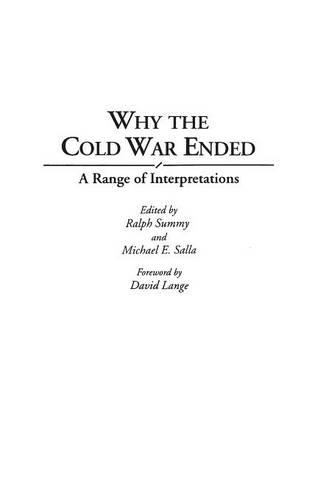
Why the Cold War Ended: A Range of Interpretations
(Hardback)
Publishing Details
Why the Cold War Ended: A Range of Interpretations
By (Author) Michael E. Salla
By (author) Ralph Summy
Bloomsbury Publishing PLC
Praeger Publishers Inc
17th July 1995
United States
Classifications
Tertiary Education
Non Fiction
General and world history
327.094
Physical Properties
Hardback
296
Width 156mm, Height 235mm
595g
Description
Did the West win the Cold War Was it a genuine or a contrived conflict When did it begin How was its cause related to its end These are among the questions considered by the contributors of this volume. Asked to assess the combination of socio-political forces and events they attribute to ending the Cold War, they have come up with diverse theories that challenge the self-serving orthodoxy that claims Western military prowess, economic strength, and ideological superiority produced the triumph. The contributors consider a range of views from the contention that the West's military resolve and economic capacity forced the Soviet Union into submission to arguments focusing on U.S. and West European peace movements and East European dissent movements. Between these diametric positions, they weigh the significance of such factors as the new thinking in the Soviet Union and the intelligentsia of Eastern Europe. Through a range of many views, they provide a broad interpretive framework for understanding the Cold War's end, and suggest how that understanding is related to the solving of future conflicts.
Author Bio
RALPH SUMMY is a Senior Lecturer in Political Science at the University of Queensland. He also coordinates the interdisciplinary Peace and Conflicts Studies program and is a cofounder and member of the editorial collective of the journal Social Alternatives. He is coauthor with Malcolm Saunders of the book The Australian Peace Movement: A Short History. MICHAEL E. SALLA Professor in the Peace & Conflict Resolution Program at American University. His scholarly interests are in the areas of nonviolence, international relations, peace studies, and ethnic/religious conflict. He is the author of Islamic Radicalism: Muslim Nations and the West (1993) and coeditor of Essay on Peace: Paradigms for Global Order (1995).
